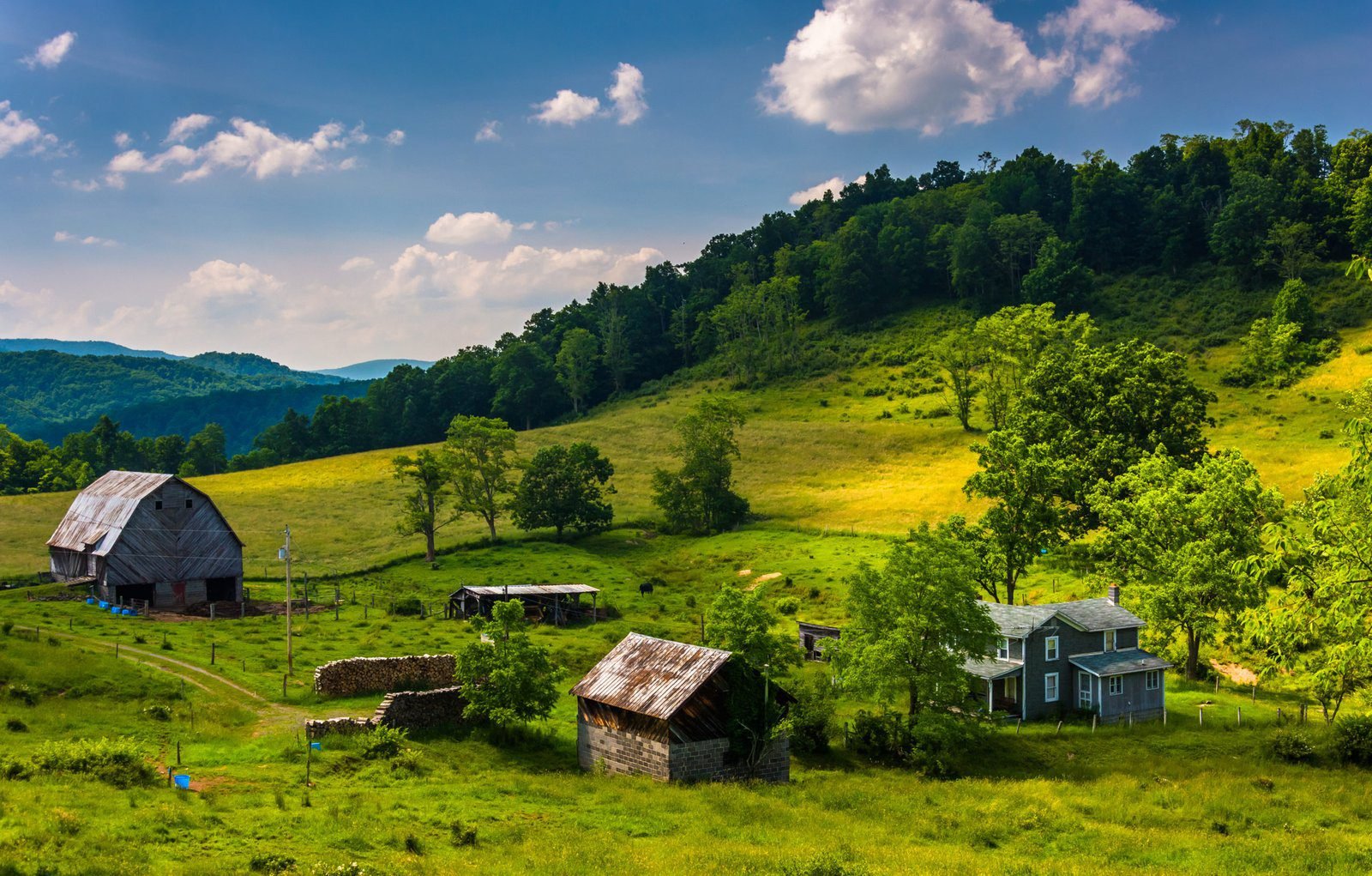Many of you may already be acquainted with Hog Holler, West Virginia, and one of its most distinguished residents, Maybelle Higginbottom. How or why I first created Maybelle I cannot now remember, but I have been sharing her story for more than 40 years…always in a performance setting. Later this year, I hope to compile Hog Holler stories into an e-book. Here is a preview. If you enjoy this brief glimpse into this welcoming community, you can download the entire story free by subscribing to my e-mail list. And now, allow me to introduce you to Maybelle’s neighbor Willow Dean Delmont.
***
The day my oldest brother Willard was born, there was great rejoicing on the Delmont Farm, 3 ½ miles east of Hog Holler, West Virginia. Aunt Madge still manages to bring up the story every single time we have a Delmont family reunion.
“On the day Willard, Jr. was born,” she will intone through her nose, “Willard, Sr. run out the screen door, leaped off the porch, and sprained his ankle so bad he could not plow for a week…a week.”
‘Week-a-week’ is always pronounced as one word.
Although any one of us could repeat this account verbatim, we were all taught from an early age to respect Aunt Madge’s place as the Delmont matriarch. So we collectively smile and wait for someone to ask, ‘And with Willard laid up, who helped Cozie with the baby?’ And then tarry some more till Aunt Madge replies, hands folded at her pint-sized waistline, ‘Me.’ And then we shake our heads in admiration and reach for another slice of cornbread…everyone except me, that is. I haven’t reached for a second slice of anything for a long time, which I’ll explain later.
Suffice it to say, the heir to the Delmont fortune entered the world—a boon beyond compare. A son born first meant the cow could go on mooing, chickens go on roosting, crops go on growing. The beneficent parents, having done their part to propagate the family line, could brush their hands—smug-like—and pass on the burden of producing male heirs to the next generation. Two or more sons? A bonus, a blessed buffer, on the outside chance the firstborn son might run off to a university to become an accountant, of all things, like the besmudged Pritchard Delmont.
However, after my brother Willard, Jr. was born—eventually called “W.J.” and then “Weejer” and eventually, pruned to just plain “Weej”—there came no more boys. Five girls followed, all named after West Virginia flowers: Rhoda Faye (short for rhododendron, our state flower), Aster Marie, Senna Lee, and Lobelia Jane. By the time I was born, my mother Cozie had run clean out of flower names and patience, so she named me after a tree, using her maiden name as my middle name. She was ‘due some recognition,’ she said, ‘after having given birth to half a dozen big-headed Delmonts.’ It was time Dean got some limelight.
So I became Willow Dean.
In addition to the Dean name, I also inherited their tendency to be plump. Unlike my sisters, who were thin as the stems of their respective namesake flowers, I had the figure of a tree trunk—thick, solid, sturdy.
Hence, avoiding the “second slice of anything,” to which I referred earlier.
Mama’s only “chubby baby,” I was everyone’s darling. Papa always scooped me up when he came in from chores, and my sisters treated me like one of their dolls. When my brother Linden Dale was born, however,—another son, who usurped my role as youngest—I came to believe I was just another ill-fated attempt for a boy. Was I merely “incidental” to the male heir Prince Weej? This conviction festered and might have set me adrift, a castaway in the Delmont Sea, if I had not been born with the gift of song, distinguishing me from my botanical siblings.





0 Comments